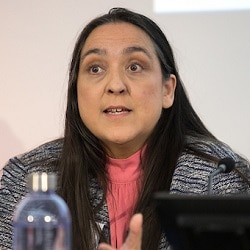
Kumar: Cost of LeO is variable and outside of our control
The Council for Licensed Conveyancers (CLC) is set to become the first regulator to introduce a ‘polluter pays’ element to how it recovers the cost of the Legal Ombudsman (LeO) from those it regulates.
The CLC is consulting on moving away from spreading the cost of LeO evenly across its regulated community and instead placing a greater burden on the law firms that generate high numbers of complaints compared to their size.
LeO’s budget for the coming year is £14.5m, an increase of 13%, and the cost is recovered by a levy on all of the legal regulators in proportion to the number of cases arising from their regulated communities.
Though the numbers involving licensed conveyancers are small – an average of 256 cases over each of the last three years, only about 4% of the total handled by LeO – the charge from LeO amounts to 21% of the CLC’s total expenditure.
At the moment, the money to pay that charge is collected through the annual practice fee, which is calculated proportionally to firms’ turnovers.
The CLC said nearly half of the practices it regulated did not generate any complaints which are referred to LeO.
The consultation proposes that the cost of the LeO levy be separated from the practice fee. There would be two elements to the new standalone fee – a basic fee that all firms would have to pay and a usage fee based on the number of cases from that firm that have been referred to LeO.
The CLC said all practices should make a contribution for the availability of the complaints handling service “as it plays an important role in securing consumer confidence in the legal sector and conveyancing in particular”.
For firms with an average amount of cases, the total cost of regulation will not change materially, although small practices may see a “modest” increased cost, as their practice fee would be small compared to the LeO cost.
The consultation said the change would be fairer and provide an incentive for practices to improve their complaints handling.
At the same time, it said there was a risk that some firms might be tempted to settle complaints to prevent referrals to LeO rather than deal with the underlying issues raised.
To balance the change, the annual CLC practice fee rates will be reduced, with the CLC’s own operating costs not increasing significantly for the coming year.
Practice fees currently make up 73% of the CLC’s income, with individual licence fees almost all of the rest. Practice fees have fallen substantially, by 42%, since 2016 as a result of CLC efficiencies.
CLC chief executive Sheila Kumar says: “The Legal Ombudsman plays a valuable role, but its cost is variable and outside of our control. As a result, it can obscure the actual, falling costs of regulation by the CLC…
“We recognise that even firms with good complaints-handling processes cannot resolve every complaint and clients will refer their case to LeO. But those that see a disproportionate number of their cases go to the ombudsman should have to shoulder the extra burden that creates.”












Leave a Comment